|
When Bob Dylan dropped the deeply moving yet mournful and brooding Time
Out of Mind in 1997, it was a rollicking rockabilly and blues record full
of songs about mortality, disappointment, and dissolution. 2001 brought
Love and Theft, an album steeped in blues and other folk forms that was
funny, celebratory, biting, and stomping. In the five years since that
set, Dylan was busy: he did everything from a Victoria's Secret commercial,
to endlessly touring, to being in a couple of films -- Larry Charles'
Masked and Anonymous and as the subject of the Martin Scorsese documentary
No Direction Home -- to publishing the first of the purported three volumes
of his cagey and rambling autobiography Chronicles, to thinking about
Alicia Keys. This last comment comes from the man himself in "Thunder
on the Mountain," the opening track on Modern Times, a barn-burning,
raucous, and unruly blues tune that finds the old man sounding mighty
feisty and gleefully agitated: "I was thinkin' 'bout Alicia Keys/Couldn't
keep from cryin'/She was born in Hell's Kitchen and I was livin' down
the line/I've been lookin' for her even clear through Tennessee."
The drums shuffle with brushes, the piano is pumping à la Jerry
Lee Lewis, the bass is popping, and a slide guitar that feels like it's
calling the late Michael Bloomfield back from 1966 -- à la Highway
61 Revisited -- slips in and out of the ether like a ghost wanting to
emerge in the flesh. Dylan's own choppy leads snarl in the break and he's
letting his blues fall down like rain: "Gonna raise me an army, some
tough sons of bitches/I'll recruit my army from the oldest villages/I've
been to St. Herman's church and said my religious vows/I sucked the milk
out of a thousand cows/I got the pork chop, she got the pie/She ain't
no angel and neither am I...I did all I could/I did it right there and
then/I've already confessed I don't need to confess again."
Thus begins the third part of Dylan's renaissance trilogy (thus far,
y'all). Modern Times is raw, shambolic in places. Rhythms slip, time stretches
and turns back on itself, and lyrics are rushed to fit into verses that
won't stop coming. Dylan produced the set himself under his Jack Frost
moniker, and it feels live, immediate. Its songs are humorous and cryptic,
tender and snarling. What's he saying? We don't need to concern ourselves
with that any more than we had to Willie Dixon talking about backdoor
men or his metaphors for love and trouble, or Elmore James dusting his
broom. Dylan's blues are primitive and impure. Though played by a crackerjack
band, they're played with a fury as the singer wrestles down musical history
and tradition as he spits in the eye of the modern world. But blues isn't
the only music here. There are parlor songs such as "Spirit on the
Water," where love is as heavenly and earthly a thing as exists in
this life. The band swings gently and carefree, with Denny Freeman and
Stu Kimball playing slippery -- and sometimes sloppy -- jazz chords as
Tony Garnier's bass and George Receli's sputtering snare walk the beat.
Another, "When the Deal Goes Down," makes it tempting to think
of Dylan aping Bing Crosby in his gravelly snake rattle of a voice (but
find someone who can phrase better). He's an unabashed fan of the old
arch meanie crooner. But it just ain't Bing, because it's got that swing.
Dylan comes from the great blues and jazzman Lonnie Johnson (whose version
of the Grosz and Coslow standard "Tomorrow Night" he's been
playing for years in his live set). If you need further proof, look to
Johnson's last recordings done in the late '50s and early '60s ("I
Found a Dream" and "I'll Get Along Somehow"), or go all
the way back to the early years for "Secret Emotions," and "In
Love Again," cut in 1940. It is in these songs where you will find
the heart of Dylan's sweet song ambition. Dylan evokes Muddy Waters in
"Rollin' and Tumblin." He swipes the riff, the tune itself,
and uses some of the words and adds a whole bunch of his own. Same with
his use of Slim Harpo in "Someday Baby" -- who may have copped
his riff from Muddy anyway. Those who think Dylan merely plagiarizes miss
the point. Dylan is a folk musician; he uses folk forms such as blues,
rock, gospel, and R&B as well as lyrics and licks and/or whatever
else he can to get a song across. This tradition of borrowing and retelling
goes back to the beginning of song and story. Even the title of Modern
Times is a wink-eye reference to a film by Charlie Chaplin. It doesn't
make him less; it makes him more because he contains all of these songs,
their secret histories, and subtle nuances and labyrinthine legends; and
besides, he's been around long enough to do anything he damn well pleases.
Modern Times expresses emotions and comments upon everything from love
("When the Deal Goers Down," "Beyond the Horizon")
to mortality ("The Levee's Gonna Break," "Ain't Talkin")
to the state of the union and world -- check "Workingman's Blues
#2," where Dylan sings gently about the "buyin' power of the
proletariat's gone down/Money's getting shallow and weak...they say low
wages are reality if we want to compete at all." But in the next
breath he's put his "cruel weapons on the shelf" and invites
his beloved to sit on his knee, telling her she means more to him than
himself. It's a poignant midtempo ballad that walks the line between the
political stories of Cisco Houston and Woody Guthrie to the love songs
of Stephen Foster and Leadbelly and early doo wop records. One can feel
both darkness and light struggling inside the singer for dominance. But
in his carnal and spiritual imagery and rakish honesty, he's not giving
in to either side. This is a storyteller, a pilgrim, who's seen it all,
has lived it all, and found it all wanting; he's found some infinitesimal
take on the truth that he's holding on to with a vengeance. In the midst
of changes that are foreboding, Modern Times is the sound of an ambivalent
Psalter coming in from the storm, dirty, bloodied, but laughing at himself
-- because he knows nobody will believe him anyway.
Dylan digs deep into the pocket of American song past in "Nettie
Moore," a 19th century tune from which he borrowed the title and
first line of its chorus. He also uses words by W.C. Handy and Robert
Johnson as he extends the meaning of the tome by adding his own metaphorical
images and wry observations. However, even as the song is from antiquity;
it's full of the rest of Modern Times bemusement. "The Levee's Gonna
Break" shakes and shimmies as it warns about the coming catastrophe.
Coming as it does on the anniversary of Hurricane Katrina, it's a particularly
poignant number that reveals apocalypse and redemption and rails on the
greedy and powerful as it parties in the gutter. There are no sacred cows
-- when Dylan evokes Carl Perkins' exhortation to put "your cat clothes
on," it's hard not to stomp around maniacally even as you feel his
righteousness come through. The great irony is in the final track, "I
Ain't Talkin'," where a lonesome fiddle, piano, and hand percussion
spill out a gypsy ballad that states a yearning, an unsatisfied spiritual
hunger. The pilgrim wanders, walks, and aspires to do good unto others,
though he falters often -- he sometimes wants to commit homicide. It's
all part of the stroll. The guitar interplay with the fiddle (a second
gypsy melody as one of gypsy swing comes through loud and clear and sweet
in "Beyond the Horizon") and the one-note bassline are hypnotic.
Dylan's simmering growl adds a sense of apprehension, of whistling through
the graveyard, of determination to get to he knows not where, but supposedly
it's the other side of the world. It sends the album off with a wry sense
of foreboding. This pilgrim is sticking to what he knows is solid -- the
motion of his feet.
Modern Times offers a new weird America, one stranger than any that's
come before, because it's merely part of a new weird world. In these ten
songs, bawdy joy, restless heartache, comical scenes, and bottomless sadness
all coexist and inform one another as a warning and celebration of this
precious human life and wondering about whatever comes after. This world
view is expressed through forms threatened with extinction: old rackety
blues that pack an electrically charged wallop, parlor tunes and crooned
pop-style ballads that could have come from the 1930s or even the 1890s.
Modern Times is the work of a professional mythmaker, a back-alley magician
and prophetic creator of mischief. It offers a view of the pilgrim as
pickpocket, the thief as holy man, the lover as the fighter. And all bets
are on to see who finishes dead last. What could be more confusing or
so ultimately timeless as contradiction as entertainment, provided with
a knowing, barely detectable grin.
(All Music Guide)
|
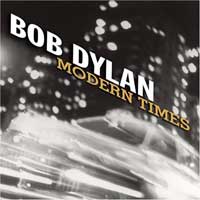 auf erweiterter Jahresliste
auf erweiterter Jahresliste  Plattentipp
Plattentipp 
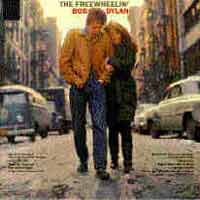
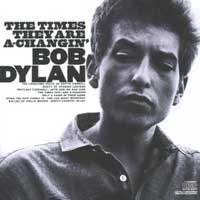
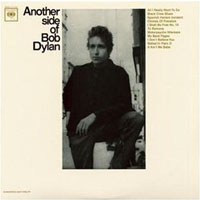
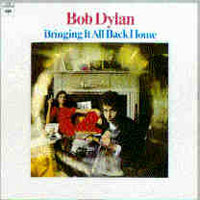
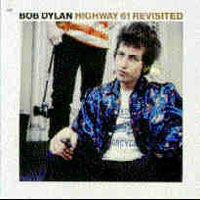
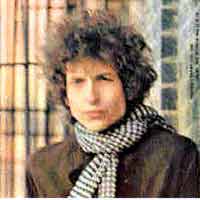

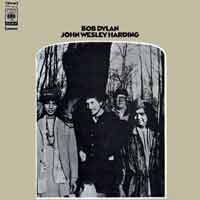
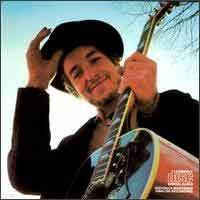

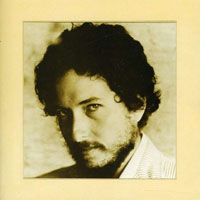

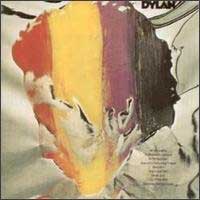
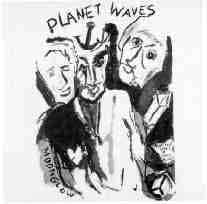

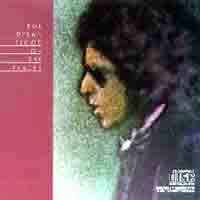
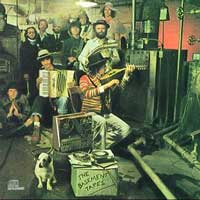
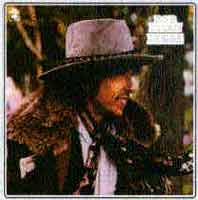
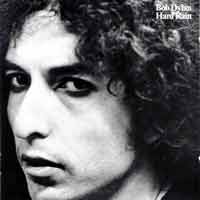
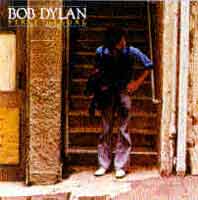

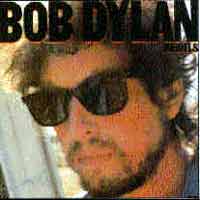

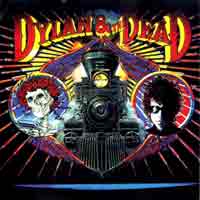
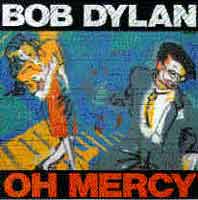

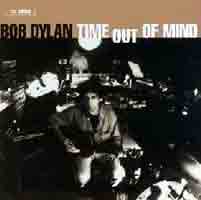
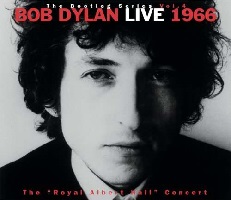
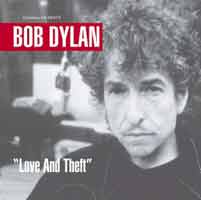
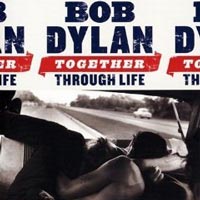
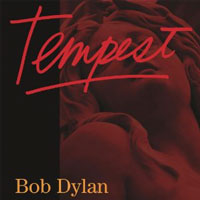

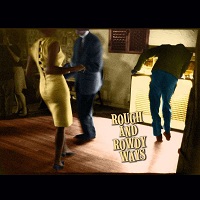
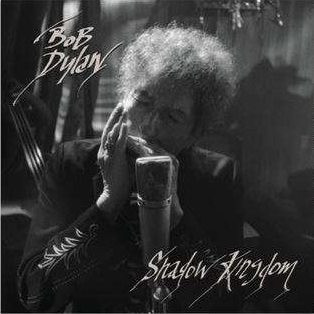
 September 2006 im Rolling Stone
September 2006 im Rolling Stone 